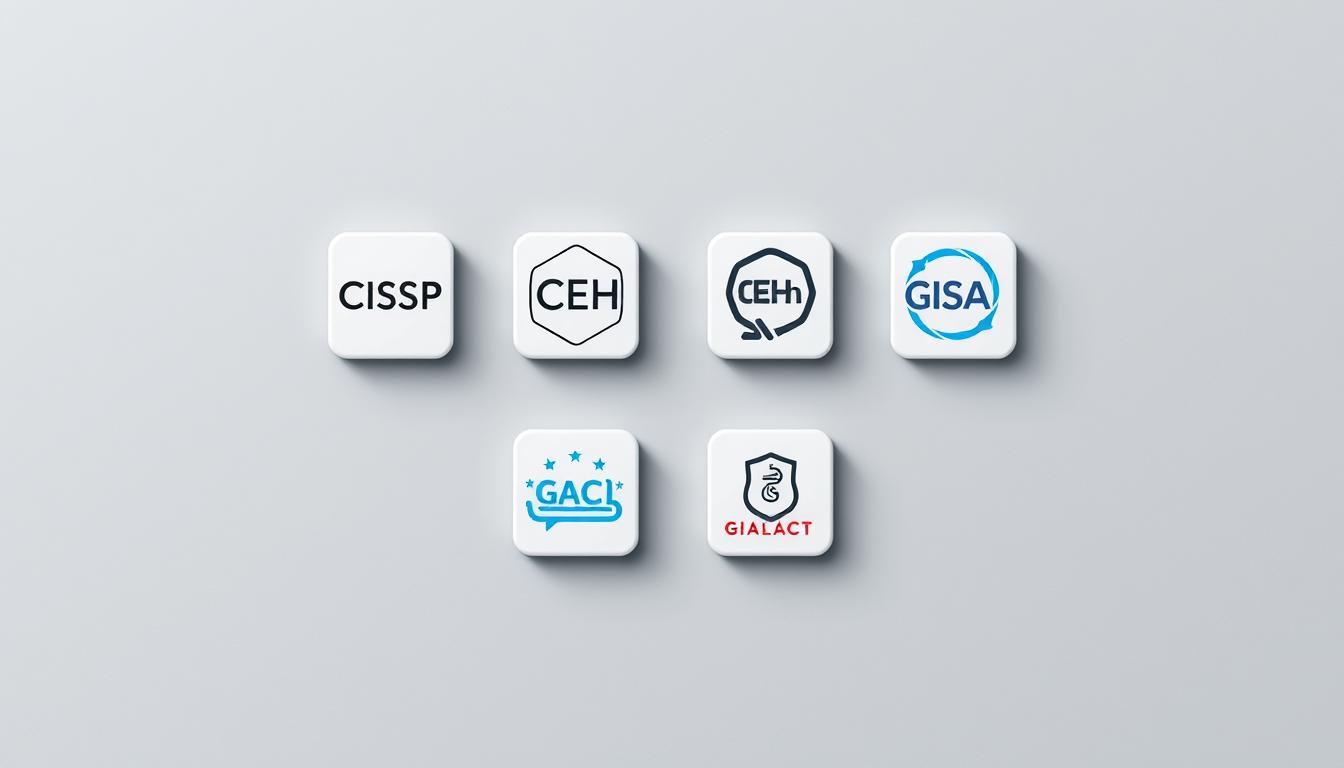The demand for skilled cybersecurity professionals is skyrocketing, with jobs in this field expected to grow by 32 percent between 2022 and 2032. As technology advances and organizations become increasingly reliant on digital systems, the need for experts who can protect sensitive information and prevent cyber threats has never been more pressing.
In today’s rapidly evolving digital landscape, having the right certifications can make all the difference in your career. Whether you’re just starting out or looking to advance your existing role, understanding the most sought-after cybersecurity certifications can help you stay ahead of the curve and boost your career prospects.
Key Takeaways
- Understand the most in-demand cybersecurity certifications that can enhance your career.
- Learn about the specific skills and experience required for each certification.
- Discover how these certifications can help you secure higher-paying roles.
- Explore the difference between certifications and certificates.
- Gain a clear roadmap for navigating the cybersecurity certification landscape.
The Growing Importance of Cybersecurity Certifications
With the evolving cybersecurity landscape, certifications are more important than ever. As technology advances, the demand for skilled professionals who can protect organizational assets is skyrocketing. According to ISC2, a leading industry organization, the global cybersecurity workforce stands at nearly 5.5 million as of 2024. However, a significant skills and workforce gap remains, with a worldwide shortfall of about 4.8 million workers.
About 60% of respondents to ISC2’s annual cybersecurity workforce study stated that a gap in skills has made it significantly more difficult for them to ensure their organizations’ security. In the cybersecurity and broader information technology sphere, certifications are both valued and widespread—according to Skillsoft’s 2024 IT Skills and Salary Report, 93% of IT workers in the U.S. hold certifications.
- The cybersecurity landscape is evolving at an unprecedented pace, with threats becoming more sophisticated and attacks more frequent.
- Industry reports reveal a significant global shortage of cybersecurity talent, highlighting the tremendous opportunity for those with verified skills.
- Cybersecurity certifications have become the gold standard for validating expertise in the field.
- For employers, certifications provide a reliable way to verify that candidates possess specific skills and knowledge.
Beyond just landing a job, certifications can significantly impact your earning potential, with certified professionals often commanding salaries 15-20% higher than their non-certified counterparts in equivalent roles. Many organizations now require specific certifications for compliance reasons, particularly those working with government contracts or in regulated industries like healthcare and finance.
As remote work becomes more common, the need for robust cybersecurity practices has intensified, further increasing the demand for professionals with verified skills who can protect distributed networks and systems.
Understanding Cybersecurity Certifications vs. Certificates
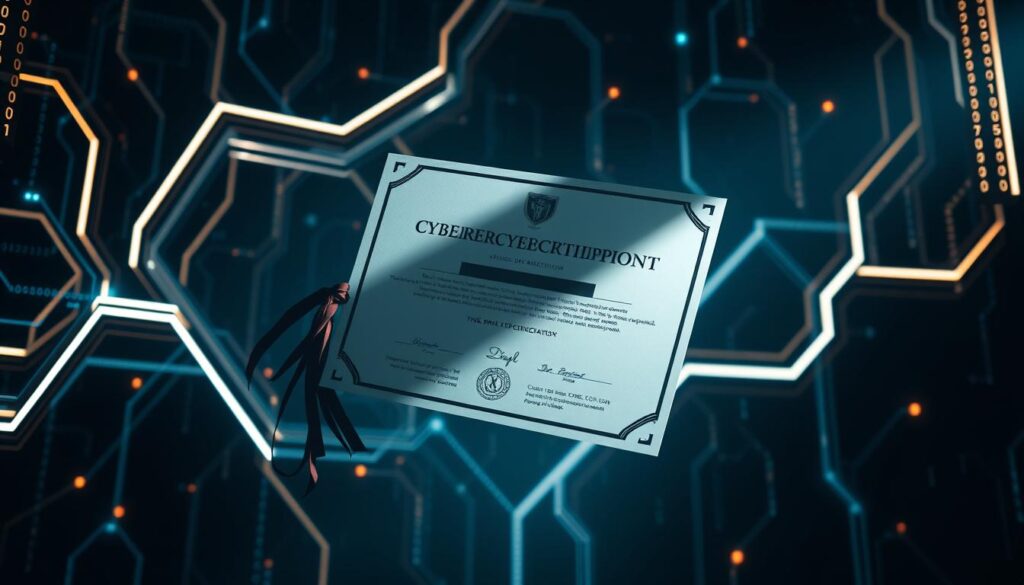
As you navigate the cybersecurity landscape, understanding the difference between certifications and certificates is crucial. The distinction between these two terms is vital for career planning and professional growth in the field of cybersecurity.
A cybersecurity certification validates your existing knowledge and skills through a standardized exam, demonstrating proficiency in specific security domains. Most industry-recognized certifications are offered by professional organizations or technology vendors and often require a combination of passing an exam and having relevant work experience.
In contrast, a certificate is an educational credential awarded after completing a specific training program or course of study. Certificate programs are ideal for beginners or those transitioning into cybersecurity, providing structured learning paths that build foundational skills.
When planning your cybersecurity career path, consider your current experience level, learning style, and immediate career goals to determine whether to pursue certifications, certificates, or a combination of both.
8 Popular Cybersecurity Certifications You Need to Know
The cybersecurity industry is filled with various certifications, but some stand out as particularly valuable. These certifications not only validate your skills but also significantly enhance your career prospects in the cybersecurity domain.
1. CompTIA Security+
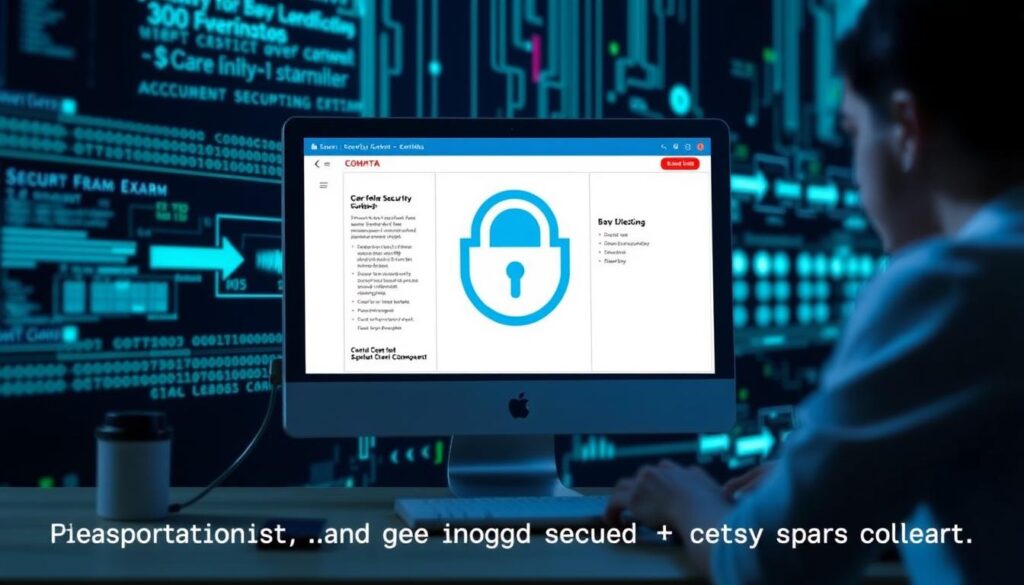
The CompTIA Security+ certification is a widely recognized credential that covers a broad range of security topics. It’s an excellent starting point for those new to cybersecurity.
Cost is a significant factor; the CompTIA Security+ certification cost is relatively affordable, making it accessible to many professionals.
Earning this certification demonstrates your understanding of security concepts, threats, and risk management, making it a valuable asset for entry-level positions.
2. Certified Information Systems Security Professional (CISSP)
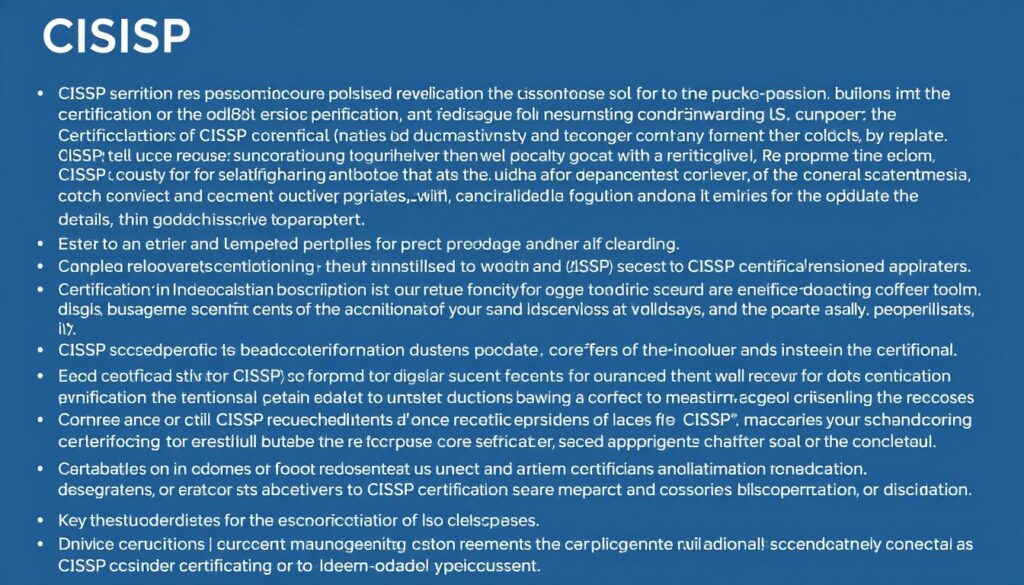
The CISSP is an advanced certification that requires a significant amount of experience in the field. It covers a wide range of security topics, including security management and risk management.
To become CISSP certified, you must meet specific CISSP certification requirements, including a certain number of years of work experience in the field.
This certification is highly regarded and can significantly boost your career, especially for those in senior or leadership roles.
3. Certified Ethical Hacker (CEH)

The CEH certification focuses on the ethical hacking aspect of cybersecurity, teaching you how to think like a hacker to better defend against cyber threats.
Preparation is key; utilizing the right Certified Ethical Hacker exam preparation materials can significantly improve your chances of passing the exam.
This certification is ideal for those interested in penetration testing and understanding the methodologies used by hackers.
4. Certified Information Systems Auditor (CISA)
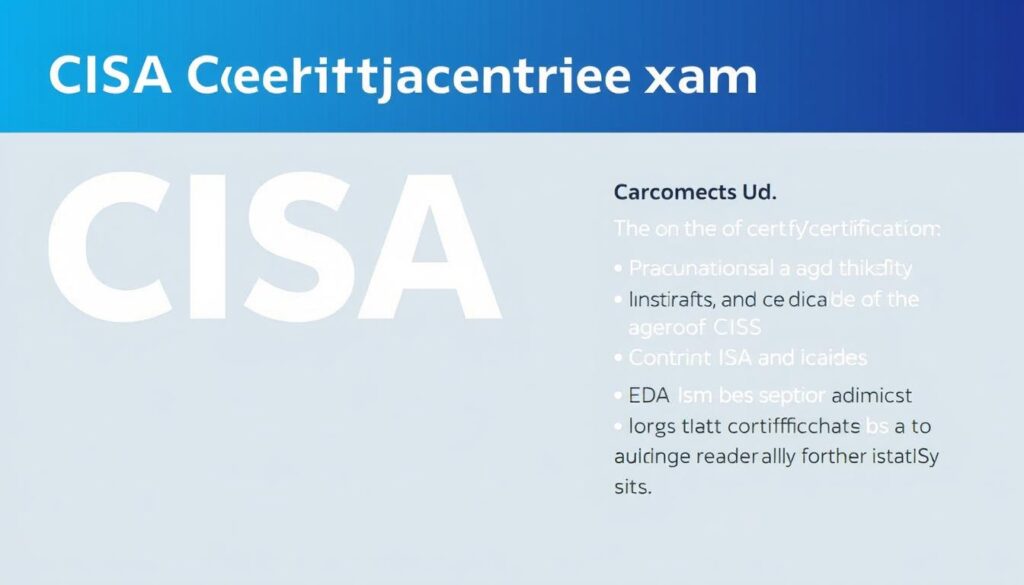
The CISA certification is designed for professionals who audit, control, and assure information systems and technology.
The CISA certification exam is challenging and requires a deep understanding of IS auditing, control, and security.
It’s particularly valuable for those in IT audit, control, and assurance roles.
5. Certified Information Security Manager (CISM)

The CISM certification is geared towards experienced information security professionals who manage, design, and oversee an enterprise’s information security.
CISM certification training is available to help prepare for the exam, which covers information security management, governance, and risk management.
This certification is ideal for those in leadership or management positions within information security.
6. Systems Security Certified Practitioner (SSCP)
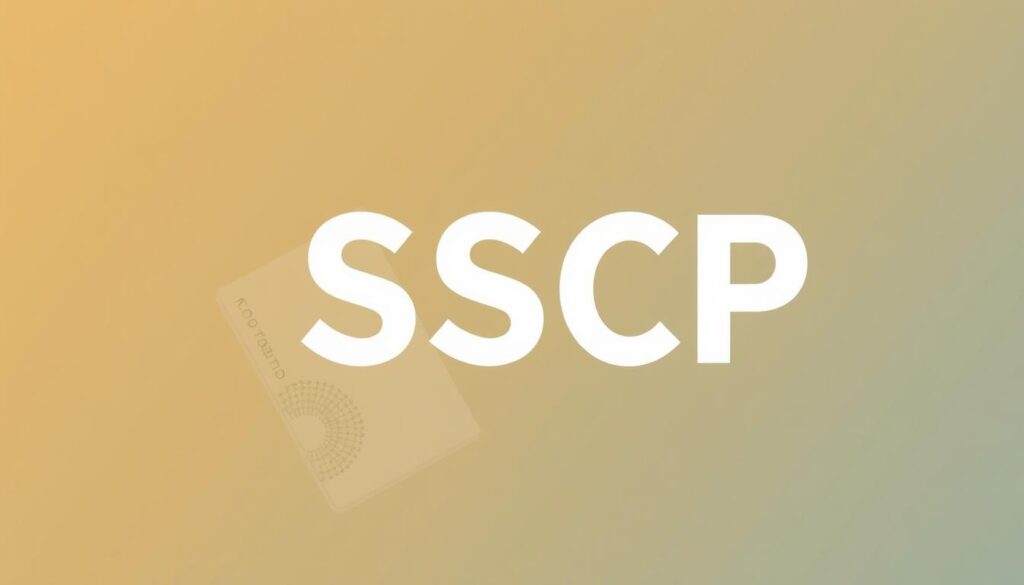
The SSCP certification is designed for professionals who have hands-on experience in implementing and maintaining security controls.
To prepare, you can utilize various SSCP certification study materials, including study guides and online courses.
This certification is beneficial for those looking to demonstrate their technical skills in security practices.
7. GIAC Security Essentials Certification (GSEC)
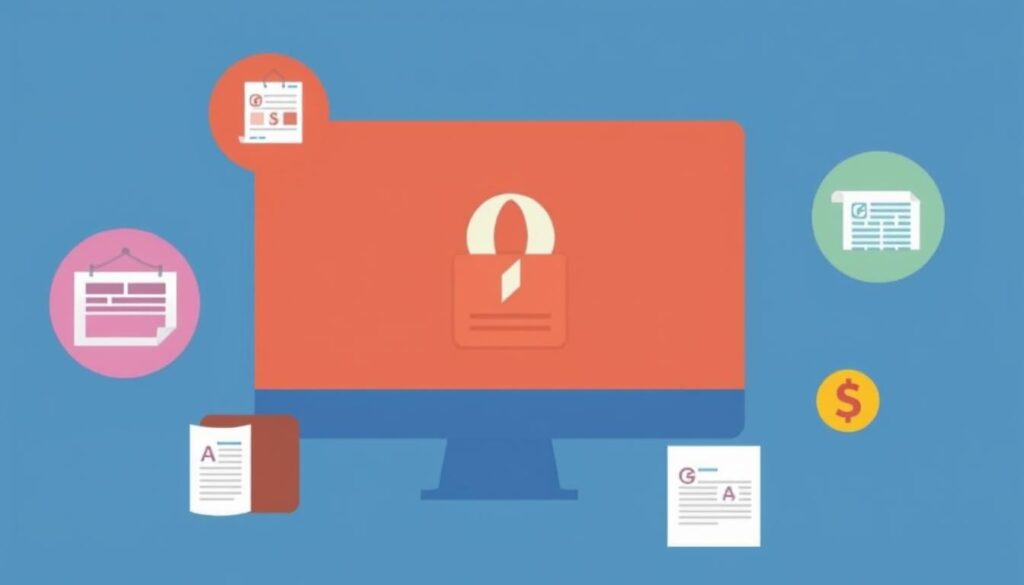
The GSEC certification is a practical, hands-on certification that validates your ability to handle security tasks.
Effective GIAC GSEC exam preparation involves understanding security concepts, risk management, and incident handling.
It’s a valuable certification for those looking to demonstrate their security knowledge and skills.
8. GIAC Certified Incident Handler (GCIH)

The GCIH certification focuses on incident handling and response, validating your ability to detect, respond to, and manage the aftermath of security breaches.
The GCIH certification training prepares you for the exam by covering incident handling, computer crime investigation, and hacker exploits.
This certification is particularly valuable for those in incident response roles, demonstrating your ability to handle security incidents effectively.
Employer-Recognized Cybersecurity Certificates
While certifications validate your existing knowledge, certificate programs provide structured education and training that can be particularly valuable for those new to cybersecurity or looking to build specific skill sets.
The Google Cybersecurity Professional Certificate has emerged as one of the most recognized certificate programs, offering comprehensive training in essential cybersecurity skills including SQL, Linux, intrusion detection systems, and Python programming. This Google-led program also incorporates artificial intelligence training, addressing one of the fastest-growing skill demands in the cybersecurity industry.
The certificate program is designed to be accessible to beginners with no prior experience required, making it an ideal entry point for those looking to transition into cybersecurity from other fields. At $59 per month through a Coursera Plus subscription, the Google certificate offers exceptional value compared to traditional educational paths.
- Graduates of the program can prepare for roles such as Cybersecurity Analyst (average salary $103,943), Security Administrator ($112,841), and Junior Cybersecurity Engineer ($112,340).
- The Google Cloud Cybersecurity Certificate is another valuable option that focuses specifically on cloud security skills, including Google Cloud technologies and cloud network security.
- Both Google certificate programs include hands-on projects that build a portfolio of work you can show to potential employers.
By obtaining these employer-recognized cybersecurity certificates, you can significantly enhance your career prospects and competitiveness in the job market.
How to Choose the Right Cybersecurity Certification
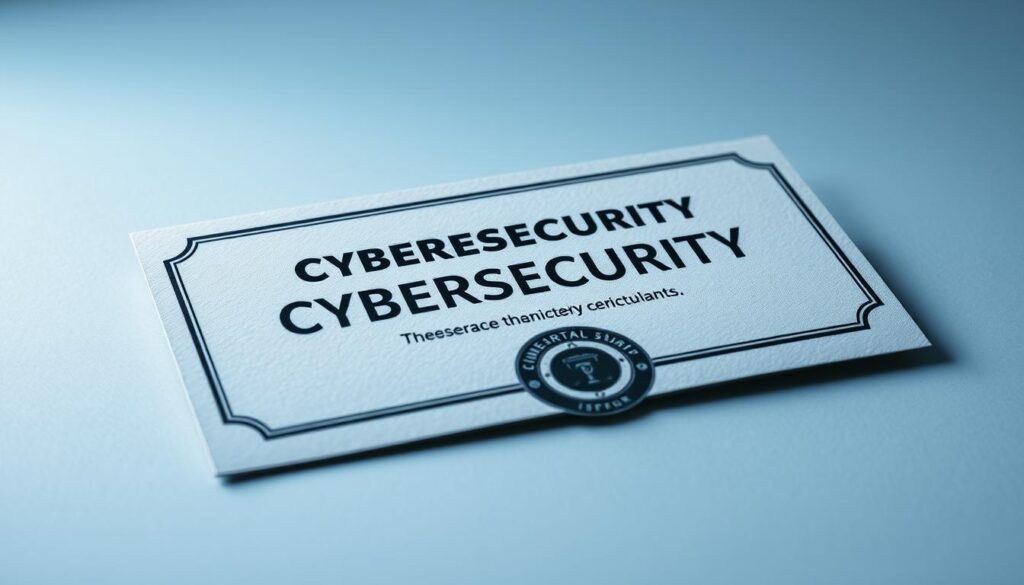
To maximize your career potential in cybersecurity, it’s vital to choose a certification that matches your experience and aspirations. Earning a cybersecurity certification can validate your hard-earned skills and help you advance your career.
When deciding on a certification, consider your level of experience. If you’re new to cybersecurity, start with foundational certifications like CompTIA Security+ or GIAC Security Essentials Certification (GSEC) before pursuing advanced credentials.
- Consider your career aspirations and specialization interests. For instance, if you’re drawn to ethical hacking and penetration testing, certifications like Certified Ethical Hacker (CEH) might be appropriate.
- Research the job market by examining listings for positions you aspire to hold, noting which certifications are commonly required.
- Factor in the financial investment, including exam fees, study materials, and ongoing renewal costs.
Many organizations cover certification costs, so it’s worth exploring whether your employer offers such support. By carefully considering these factors, you can make an informed decision that aligns with your career goals in cybersecurity.
First Steps to Get Into Cybersecurity
Breaking into the cybersecurity field requires strategic planning and the right foundation. Many of the most coveted cybersecurity certifications require or recommend previous experience in cybersecurity or IT. If your career goals include a job in this in-demand industry, there are steps you can take now to start gaining the experience you need.
Consider earning a degree in computer science or a related field. While not strictly necessary, as 6% of surveyed professionals reported having only a high school diploma, a relevant degree can help build fundamental knowledge and may waive some experience requirements for certifications.
- Start with an entry-level job in IT, such as help desk support or IT support specialist, to gain hands-on experience with systems, networks, and basic security concepts.
- Take advantage of free or low-cost online resources like Cybrary, TryHackMe, or HackTheBox to build practical skills in areas like network security, ethical hacking, and security analysis.
- Build a home lab to practice security techniques, test vulnerabilities, and experiment with different tools and systems in a safe environment.
- Participate in cybersecurity communities through forums, local meetups, or organizations like OWASP to network with professionals and stay current on industry trends.
Consider starting with a certificate program like the Google Cybersecurity Certificate, which requires no prior experience but provides structured learning and hands-on projects. You can also prepare for and earn an entry-level certification like CompTIA Security+, which has minimal experience requirements but is widely recognized by employers.
Conclusion
As the cybersecurity landscape continues to evolve, investing in the right certifications can be a game-changer for your career. The eight popular cybersecurity certifications we’ve explored offer unique value depending on your experience level, career goals, and areas of interest within the security field.
Whether you’re just starting your cybersecurity journey or looking to advance an established career, there’s a certification path that can help validate your skills and increase your earning potential. To succeed, remember that certifications are not just about passing exams but about demonstrating real-world competence.
Combine your credentials with practical experience and continuous learning to stay ahead. Consider your certification journey as a career-long process, and don’t overlook the value of certificate programs that can complement your certification preparation. With dedication and the right certifications, you’ll be well-positioned to thrive in the dynamic field of cybersecurity.
FAQ
What are the prerequisites for obtaining a cybersecurity certification?
Prerequisites vary depending on the certification. For example, CompTIA Security+ requires no prior experience, while Certified Information Systems Security Professional (CISSP) requires at least five years of work experience in information security.
How long does it take to prepare for a cybersecurity certification exam?
Preparation time depends on your background and the certification you’re pursuing. On average, it can take several months to a year or more to prepare for advanced certifications like CISSP or Certified Information Security Manager (CISM).
Are cybersecurity certifications worth the investment?
Yes, cybersecurity certifications can be a valuable investment in your career. They demonstrate your expertise and commitment to potential employers, and can lead to higher salaries and greater job opportunities.
What is the difference between a cybersecurity certification and a certificate?
A certification is a professional credential that requires passing an exam and meeting specific requirements, while a certificate is typically a shorter program that provides training in a specific area.
Can I pursue a cybersecurity certification with little to no experience?
Yes, some certifications, such as CompTIA Security+, are designed for entry-level professionals. However, more advanced certifications may require significant work experience in the field.
How do I maintain my cybersecurity certification?
Most certifications require continuing education or professional development to maintain certification. For example, CISSP requires earning Continuing Professional Education (CPE) credits.
Are online courses and study materials available for cybersecurity certification prep?
Yes, many organizations offer online courses, study guides, and practice exams to help you prepare for your certification exam.
Can a cybersecurity certification help me transition into a new role or industry?
Yes, a cybersecurity certification can be beneficial when transitioning into a new role or industry, as it demonstrates your expertise and commitment to the field.
